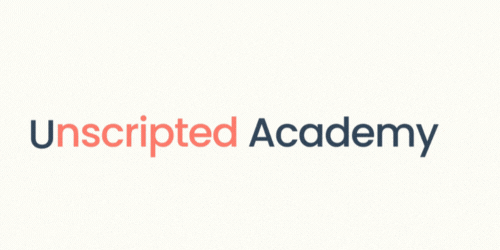Unleash your Creativity! Unlock your Potential!
Our Most Important Subject?
Connor Marcelis


What’s the Most Important Subject?
It’s a question every student, parent, and policymaker has asked at some point: What’s the most important subject in school?
Traditionally, the answers cluster around the “core” subjects: Maths, English, and Science. These subjects often dominate timetables, league tables, and accountability measures. And for good reason:
Maths builds logical reasoning and problem-solving skills. According to the OECD, numeracy is one of the strongest predictors of employability and lifetime earnings (OECD, Skills Outlook, 2013). Cognitive research also shows that mathematical reasoning strengthens the prefrontal cortex, the brain region responsible for planning and decision-making (Ansari, 2011).
English (or literacy) underpins communication. UNESCO data shows that literacy is directly correlated with higher civic participation and improved health outcomes (UNESCO, Global Education Monitoring Report, 2016). Reading and writing also build neural connectivity across the brain, particularly in areas linked to empathy and critical thinking (Mar et al., 2009).
Science fosters curiosity and analytical thinking. Demand for STEM-related jobs continues to outpace non-STEM fields (U.S. Bureau of Labor Statistics, 2021), while scientific thinking encourages questioning, hypothesising, and evidence-based reasoning, skills that are essential in an innovation-driven economy.
Add to this subjects like computing (crucial in the digital economy), history (essential for cultural literacy), and financial education (increasingly valued for life skills), and you begin to see why it’s hard to crown just one subject as “the most important.”
But here’s the paradox: none of these subjects matter if students don’t believe in their ability to learn them.
The Psychology of Learning
Psychologists have long studied the link between confidence, motivation, and learning outcomes. Albert Bandura’s theory of self-efficacy (Bandura, 1977) shows that learners who believe they can achieve are more likely to persist, solve problems creatively, and recover from setbacks.
Neuroscience supports this, as stress and anxiety trigger the amygdala, which can override the prefrontal cortex and impair memory formation (McEwen & Sapolsky, 1995). In contrast, positive emotional states like curiosity, play, and engagement release dopamine, enhancing both learning and long-term memory consolidation (Shohamy & Adcock, 2010).
In other words: if a child feels anxious, excluded, or as though they're failing, their brain struggles to process new information.
Confidence, therefore, isn’t a “soft skill.” It’s the gateway to overall success.
Future-Proofing
The World Economic Forum’s Future of Jobs Report (2023) highlights the top skills employers expect to prioritise over the next decade:
Analytical thinking
Creative thinking
Resilience, flexibility, and agility
Motivation and self-awareness
Curiosity and lifelong learning
Empathy and active listening
Notice that none of these are tied exclusively to a traditional subject.
This is why approaches like improv, storytelling, and role-play are so powerful. They provide a safe, playful environment to practise collaboration, creativity, and adaptability. You learn to build confidence, fuelling learning across the curriculum.
Bringing it into the Curriculum
The exciting part is that these approaches don’t need to exist only in drama lessons. Improv can strengthen problem-solving in Maths, by encouraging students to think flexibly when tackling equations. Storytelling can deepen understanding in History, helping students not just memorise facts, but empathise with the people behind them. Role-play in Science can simulate real-world dilemmas, such as debating climate policy or acting out the parts of a cell, making abstract concepts tangible. By embedding these techniques across subjects, schools can keep students active, engaged, and building transferable life skills without sacrificing academic rigour.
So, What’s the Most Important Subject?
The most important subject isn’t written on the timetable. It’s confidence.
Maths, English, and Science remain vital, they give us tools to navigate the world. But confidence is what allows students to pick up those tools and use them. Without it, the best curriculum in the world sits idle.
If we want to prepare young people not just for exams, but for life, then confidence, communication, and creativity need to sit at the very heart of education.
Because the real “most important subject” is the one that makes all the others possible.
References
Ansari, D. (2011). Effects of development and enculturation on number representation in the brain. Nature Reviews Neuroscience.
Bandura, A. (1977). Self-efficacy: Toward a unifying theory of behavioral change. Psychological Review.
Mar, R. A., et al. (2009). Exploring the link between reading fiction and empathy. Journal of Personality and Social Psychology.
McEwen, B. S., & Sapolsky, R. M. (1995). Stress and cognitive function. Current Opinion in Neurobiology.
OECD (2013). OECD Skills Outlook.
Shohamy, D., & Adcock, R. A. (2010). Dopamine and adaptive memory. Trends in Cognitive Sciences.
UNESCO (2016). Global Education Monitoring Report.
World Economic Forum (2023). Future of Jobs Report.
© 2024 Unscripted Academy. All rights reserved.


